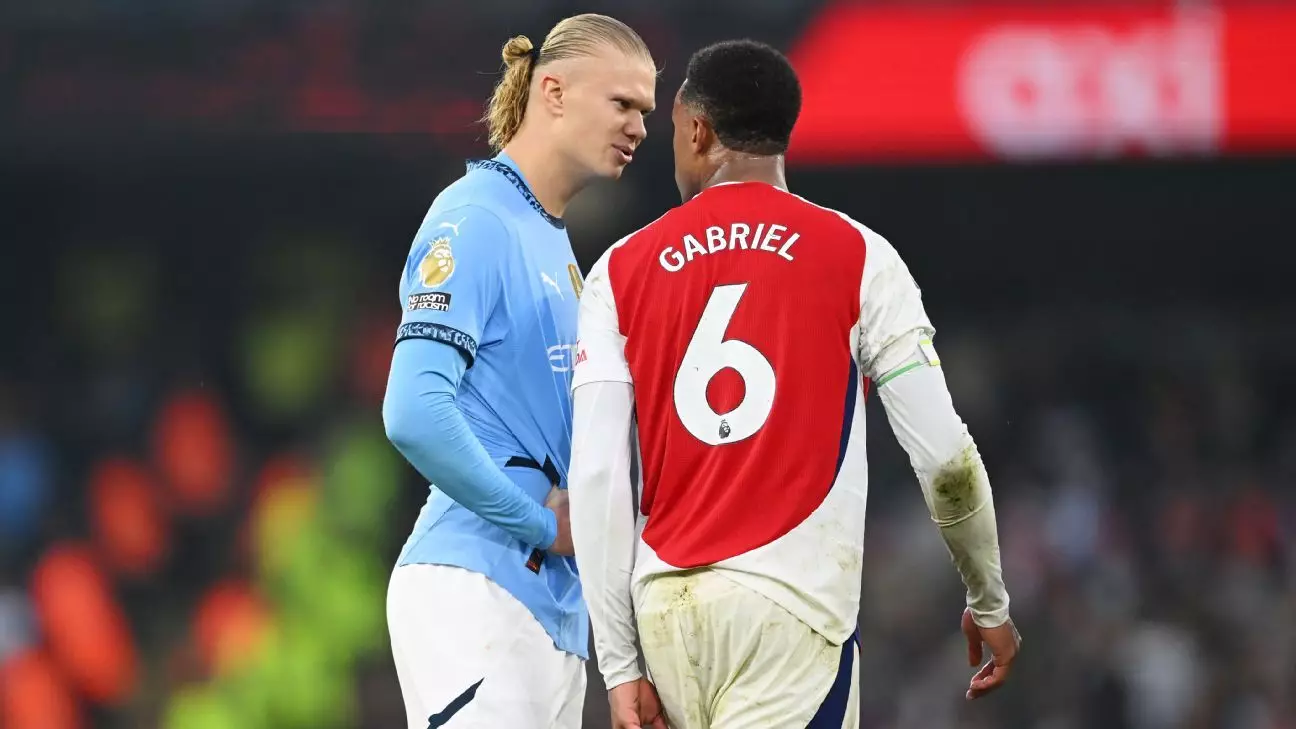In a thrilling Premier League encounter, Erling Haaland found himself at the center of controversy following Manchester City’s dramatic equalizer against Arsenal. As the clock ticked away during stoppage time, Haaland’s frustration boiled over when he seemingly threw the ball at Arsenal defender Gabriel Magalhães. The moment was caught on camera and quickly sparked debates regarding sportsmanship and the role of officiating in high-stakes games. Referee Michael Oliver, unfortunately, overlooked the incident, but it was the video assistant referee John Brooks who later assessed the throw but deemed it not to be violent conduct. This decision raised questions about the consistency of officiating standards within the league.
In the aftermath of the incident, a source revealed to ESPN that the Football Association (FA) would not impose any penalties on Haaland. This conclusion appeared to satisfy the governing body, indicating that they believed the situation was adequately addressed during the match. While many fans and pundits may feel that throwing the ball at an opponent crosses a line, it seems the FA’s stance suggests otherwise, drawing a clear distinction between emotional reactions and malicious intent in player conduct. Ultimately, the decision not to pursue further action reflects how the authorities are navigating the fine line between competitive emotion and discipline.
The heated feelings didn’t end with the final whistle. Reports indicate that Haaland engaged in a verbal spat with both Arsenal manager Mikel Arteta and forward Gabriel Jesus. According to multiple accounts, Haaland challenged Arteta, urging him to “stay humble” amidst what was seen as a tense post-match environment. This interaction further fueled the notion that both teams viewed the game through a lens of rivalry, where every play and decision held significant weight. Adding to the energy, Haaland reportedly referred to Jesus as a “clown” during their confrontation, showcasing how the high-stakes nature of football can push players’ emotions to the limit.
Amidst this chaos, Manchester City now faces further challenges as they prepare for their upcoming Carabao Cup tie against Watford. With only 48 hours to regroup following their intense match against Arsenal, manager Pep Guardiola is under pressure to manage the fitness and selection of his squad. Key midfielder Kevin De Bruyne, recovering from a thigh injury, is likely to be sidelined, which adds complexity to Guardiola’s game plan. The looming question remains: can City bounce back effectively while navigating roster limitations and the emotional fallout of their recent clash with Arsenal?
The incident involving Haaland reflects broader themes within football, namely the balance between competitive spirit and sportsmanship. As the season progresses, it will be essential for both players and officiating bodies to be vigilant in maintaining the integrity of the game. The controversies may serve as important lessons, reminding all stakeholders that while passion drives football, respect for opponents and the spirit of the game should never take a back seat. Only time will tell how the consequences of these recent developments will shape the narrative of the season ahead.

